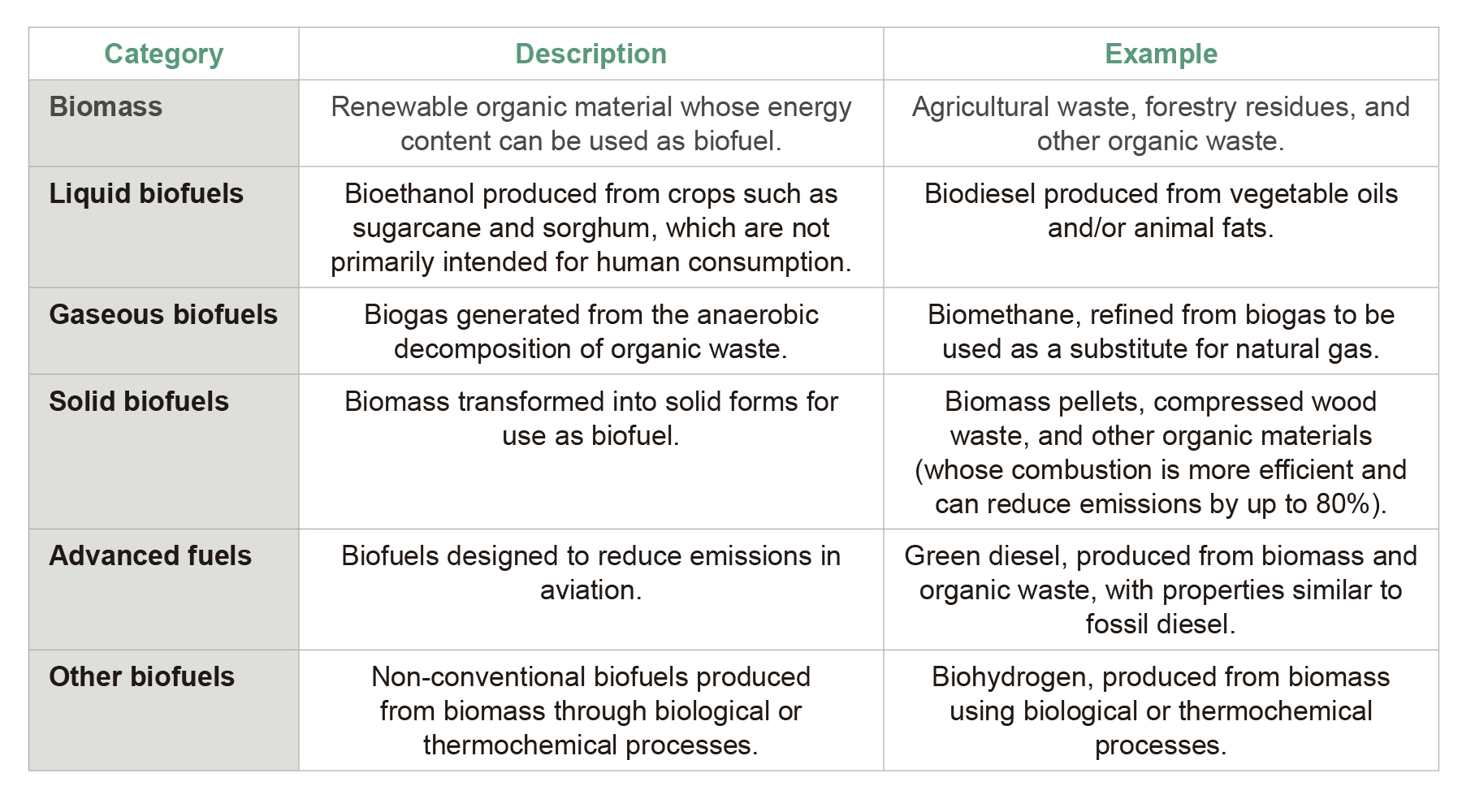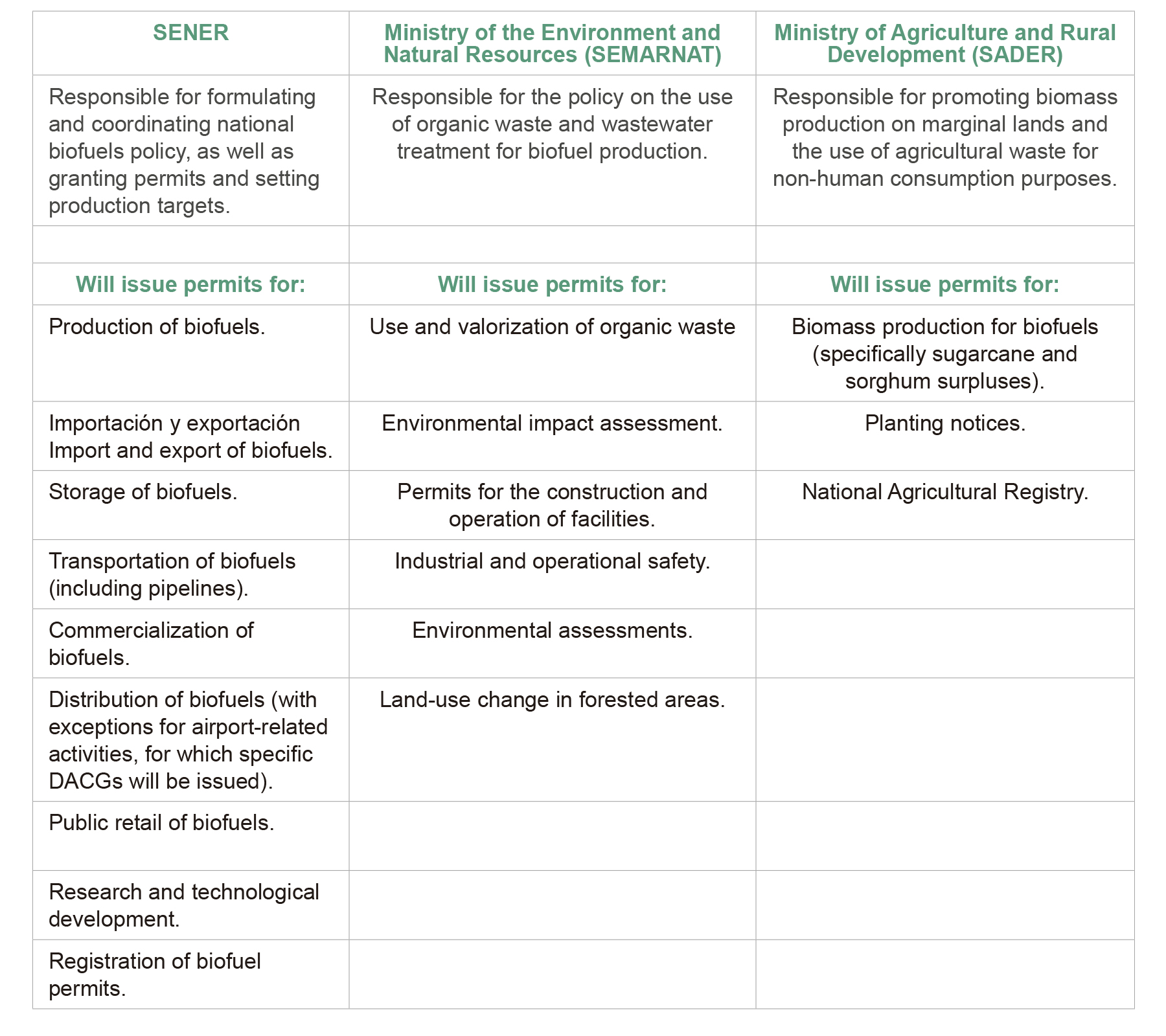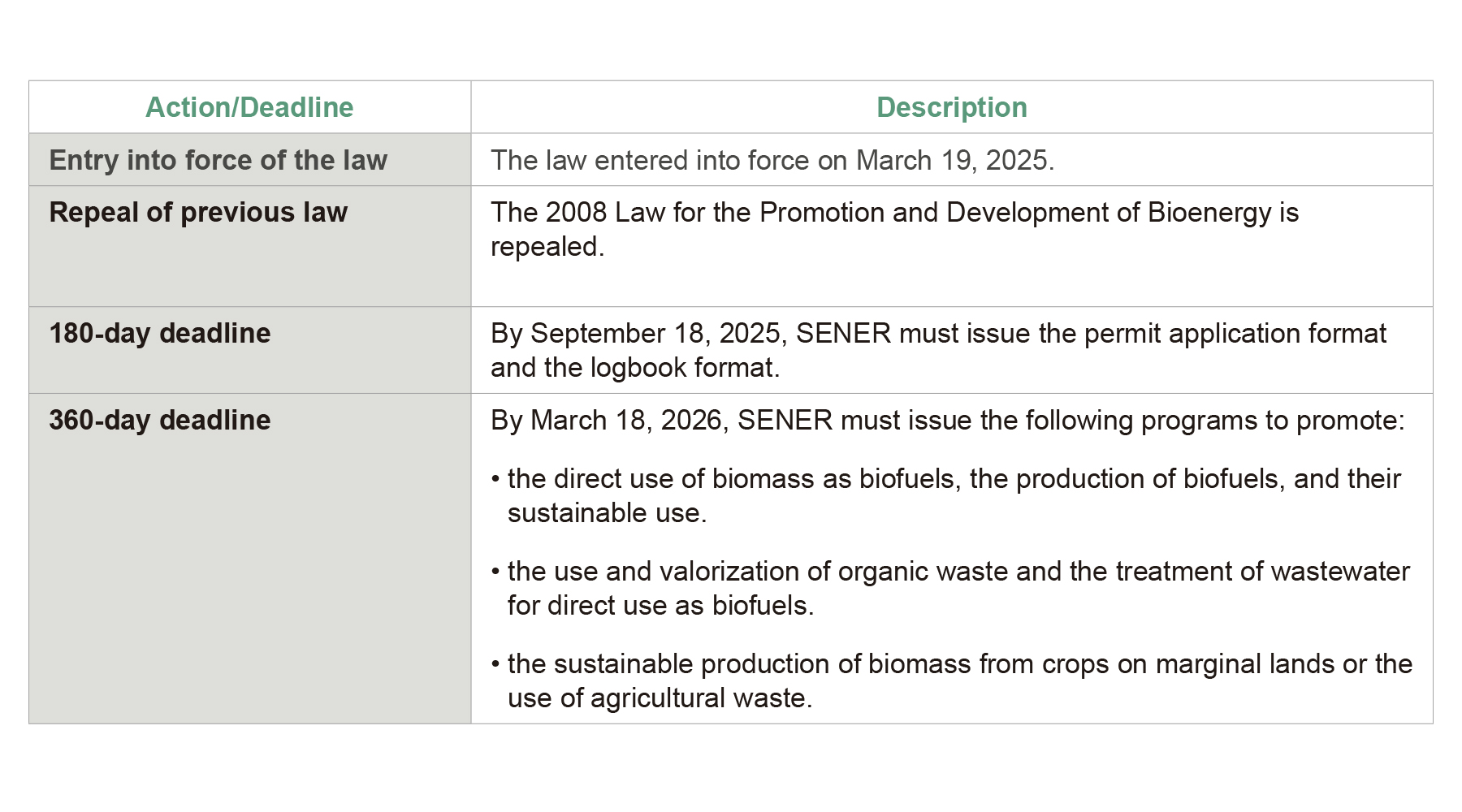Mexico: Government Drives Energy Transition with New Biofuels Law Based on Circular Economy and Clean Energy
The new Biofuels Law in Mexico, approved on March 18, 2025, establishes a specific regulatory framework to promote the production, use, and commercialization of biofuels. The law focuses on harnessing organic waste and biomass from marginal lands, fostering a circular economy and advancing the energy transition, assigning responsibilities to authorities such as SENER, SEMARNAT, and SADER.
Unlike the previous Law for the Promotion and Development of Bioenergy, which contained general provisions for promotion and development, the Biofuels Law sets forth a detailed and specific framework for economic activities such as: (i) production, (ii) import and/or export, (iii) storage, (iv) transportation, (v) commercialization, and (vi) retail biofuels stations.
This law seeks to accelerate the energy transition by diversifying and complementing the clean energy matrix. It aims to achieve this through the development of new energy generation technologies aligned with the revalorization of organic waste, within a policy framework of circular economy and decarbonization.
Scope
The primary objective of the law is to regulate and promote the sustainable development of biofuels in Mexico, through:
- The utilization and revalorization of organic waste for biofuel production (promoting a circular economy model).
- The sustainable production of biomass for biofuel generation on marginal lands. In other words, abandoned areas with low productive value and limited nutrient capacity for intensive agriculture — provided the biomass does not come from food crops (with the exception of sugarcane and sorghum surpluses).
- The promotion and development of activities related to: (i) production, (ii) import and/or export, (iii) storage, (iv) transportation, (v) commercialization, and (vi) retail of biofuels, by defining, identifying, and regulating each activity.
- Serving as a central pillar in the national energy transition policy, by contributing to national goals for reducing atmospheric emissions and environmental impacts.
- Planning and coordination across different levels of government and with both the social and private sectors to boost the development of the biofuels industry.
Biofuels
The purpose of the Biofuels Law is to encourage the production and use of biofuels, such as:

Authorities
The new regulatory framework establishes and defines the responsibilities of various authorities according to their respective areas of jurisdiction:

Other Provisions
The new law also seeks to implement tax, financial, and market-based incentive programs to promote the production and use of biofuels. SENER, SEMARNAT, and SADER are granted authority to support the sector through the design and implementation of tax, financial, or market instruments.
Planning and promotion instruments and programs for the sector will be designed and implemented, setting targets to be reviewed and updated every three years.
The law establishes a restriction on the alteration of biofuels by modifying their composition in relation to the specifications set out in the pending Mexican Official Standards (NOMs). These specifications must correspond to national and international commercial uses at each stage of the value chain.
Additionally, there is an obligation to provide information to the Ministry of Economy regarding the national content of the biofuels. This requirement could deter investment, as it imposes a national content burden on developers.
The National System for Research and Technological Transfer for Sustainable Rural Development, under SADER, is granted the authority to coordinate and guide research, technological development, and training related to the sustainable production of biomass on marginal lands, whether for direct use as biofuel or for its processing and use. This system must publish annual sector-related information, although the scope and enforceability of this obligation are not clearly defined.
Permit holders are required to keep a logbook in accordance with formats issued by SENER, in which they must record the volume, date, and transaction details within the value chain. They are also required to submit periodic reports to ensure proper traceability across the sector.
The three authorities, within their respective areas of competence, may conduct inspection and oversight procedures to verify compliance with the obligations imposed on sector projects. They also have the power to revoke permits and impose sanctions.
Finally, the Biofuels Law excludes disputes related to biomass transactions or the use of organic waste from agricultural activities for energy purposes from its scope when such disputes concern the quality, quantity, or timing of products, financial services, technical services, equipment, technology, and production goods. These disputes are to be resolved through the National Arbitration Service, as established in Article 184 of the Sustainable Rural Development Law.
Disputes arising between entities involved in the production, importation, exportation, storage, commercialization, distribution, and public sale of biofuels and consumers must be resolved in accordance with the applicable provisions of the Federal Consumer Protection Law.
Relevant Transitory Provisions

Conclusions
The Biofuels Law has the potential to transform Mexico’s energy sector by promoting sustainability, technological innovation, economic development in agricultural and vulnerable sectors, and the reduction of pollutant emissions, while strengthening the production and use of biofuels. Although it remains a work in progress, pending the issuance of supporting and operational regulations, this new legal framework stands out from its predecessor due to its clarity and specificity. Furthermore, it expresses a clear intention to promote tax, market, and financial incentives, and to boost the development of national enterprises and/or capacities based on resource estimates and necessary funding sources. Only through such measures will the government be able to truly stimulate projects in this sector, making them attractive for green and sustainable financing.
It will be essential to assess the impact on food security and rural development, based on the results of the program for the sustainable production of biomass from marginal land crops for biofuel production. These outcomes will be crucial in determining the sector’s potential for growth.
The regulations and specific guidelines related to day-to-day operational obligations are still pending, which currently holds back potential new investments. If such regulations are not clear and constructive, they could jeopardize the sector’s viability.
To avoid massive environmental impacts and the loss of cropland used for human consumption, the law restricts activity exclusively to marginal lands, defined as lands lacking nutritional properties for human food crops (except for national surpluses of sugarcane and sorghum intended to meet domestic demand). However, it remains unclear whether the deforestation of forests and jungles will be permitted for the development of such projects.
The law also sets significant fines for non-compliance. Additionally, indigenous legislation must be considered in the development of these projects.
The law encourages intergovernmental coordination and private sector participation.
Should mandatory blending targets for biofuels with fossil fuels be introduced, the sector could experience a major boost.
Altogether, these elements can significantly contribute to the diversification of the energy matrix, climate change mitigation, and Mexico’s economic development, provided that the government actively promotes and incentivizes public and/or private investment.
Contacts

-
+52 55 5029 8500

-
+52 55 5029 8500

-
+52 55 5029 8500
